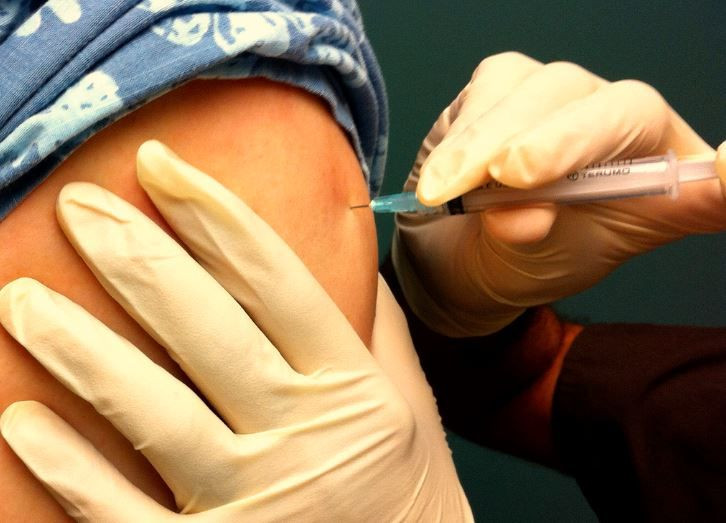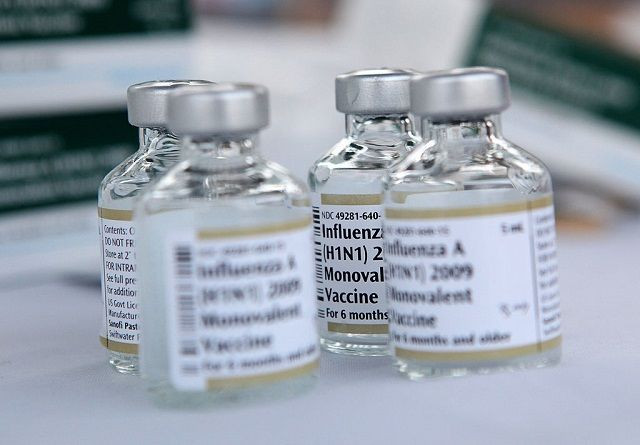Flu Season 2019: Are There Vaccines For The Elderly?

Anywhere from 70 percent to 90 percent of seasonal flu-related deaths in recent years have been among people 65 years and older, according to the U.S. Centers for Disease Control and Prevention (CDC).
The elderly also need expensive high-dose flu vaccine shots that contain four times the amount of antigen compared to a regular flu shot. These vaccines are made specifically for those 65 and older since it’s well-documented that senior citizens are at a much higher risk of suffering complications from the flu.
One of the most effective flu vaccines for seniors -- the Fluzone High-Dose vaccine made by Sanofi Pasteur -- is especially hard to come by. The Fluzone High-Dose vaccine is licensed for people 65 years and older. It's effective because it has a higher dose of the antigen that strengthens the body’s immune response.
The higher antigen content offers better protection from the flu among seniors. It takes two weeks after vaccination for the Fluzone High-Dose vaccine to take full effect.
A study in the New England Journal of Medicine (NEJM) found this vaccine prevents flu about 25 percent more often among seniors. Another study found this vaccine appears to reduce hospital admissions for the flu among the elderly.
There's only one problem: vaccines for the elderly are still hard to find. There's also a shortage of the Fluzone High-Dose vaccine despite CDC announcing that nearly 170 million flu vaccine doses of all kinds from different manufacturers will be distributed in the U.S. this year. CDC claims this total will be enough to meet anticipated demand for the flu season, which normally lasts from October to February.
What CDC is saying by washing its hands of the shortage is the supply chain's problem, and not the supply. It's a problem that keeps resurfacing every year, and every year, health authorities say the problem's only temporary.
News reports said some areas of Colorado, Wyoming and northern Indiana are experiencing a shortage of the vaccine. Local news reports from Texas, Iowa and Maine are telling the same story: flu vaccines for the elderly -- the most vulnerable population -- remain in short supply.
Health authorities in Port Arthur, Texas are now reporting a shortage of higher-dose vaccines recommended for people 65 and older. The Port Arthur Health Department believes the shortage is likely the result of increased awareness about the importance of senior citizens getting vaccinated.
Latasha Mayon, Assistant Director of the Port Arthur Health Department, said it's very important for senior citizens to get immunized against the flu.
"They will have the worst of it, the symptoms will be multiplied by 100 if they're not treated at least with the flu shot," she pointed out.
Health experts in Iowa are blaming their vaccine shortages on supply chain issues. Others claim the shortage is because the CDC took one month longer to decide what vaccines should be produced for this year's flu season.
“The reason for the shortage is because the CDC who makes recommendations for what strains are in the flu vaccine made a late change to the recommendation which put production behind a month,” according to one Iowa pharmacist.
In Maine, it's been reported in the media some pharmacies in the state don’t yet have the flu vaccine designed for seniors. State health officials said there's no hitch getting most flu vaccines. But a few specialized ones such as those for seniors were delayed by a month while experts figured out how to reformulate them for maximum value.
The shortage appears to be a temporary problem, as per health officials.

Published by Medicaldaily.com



























